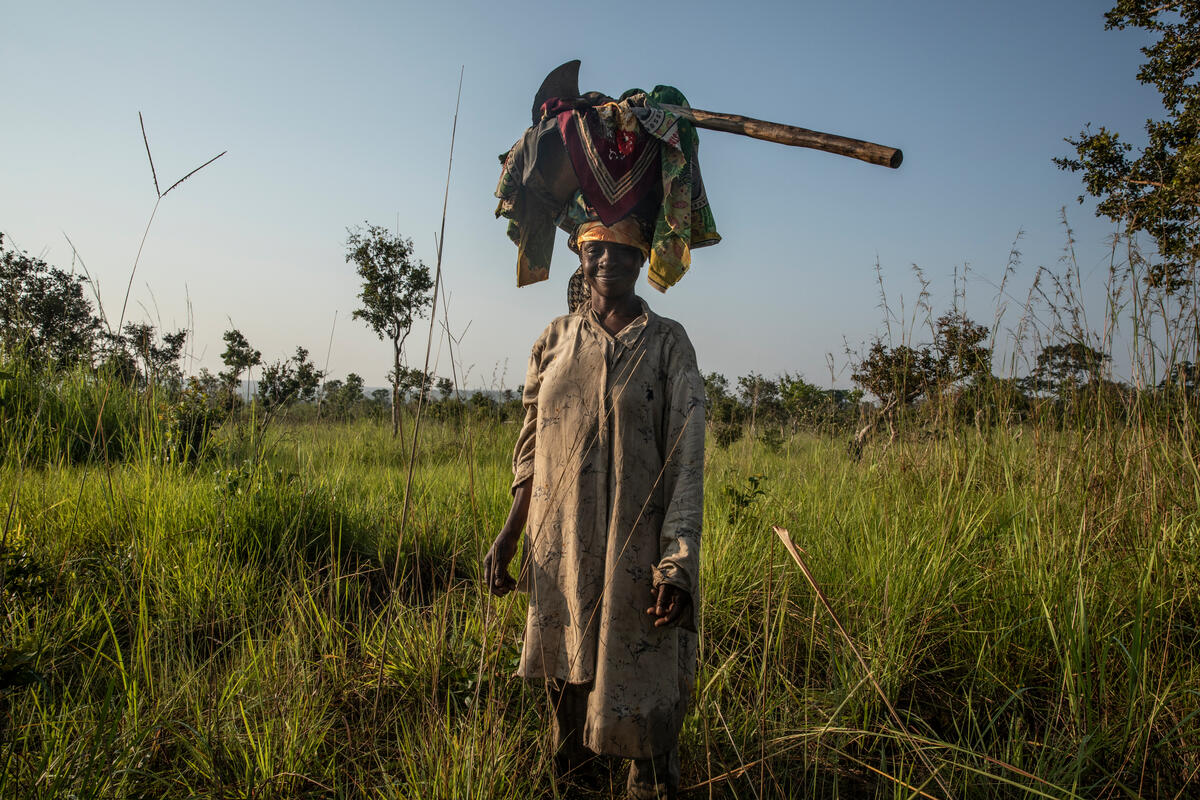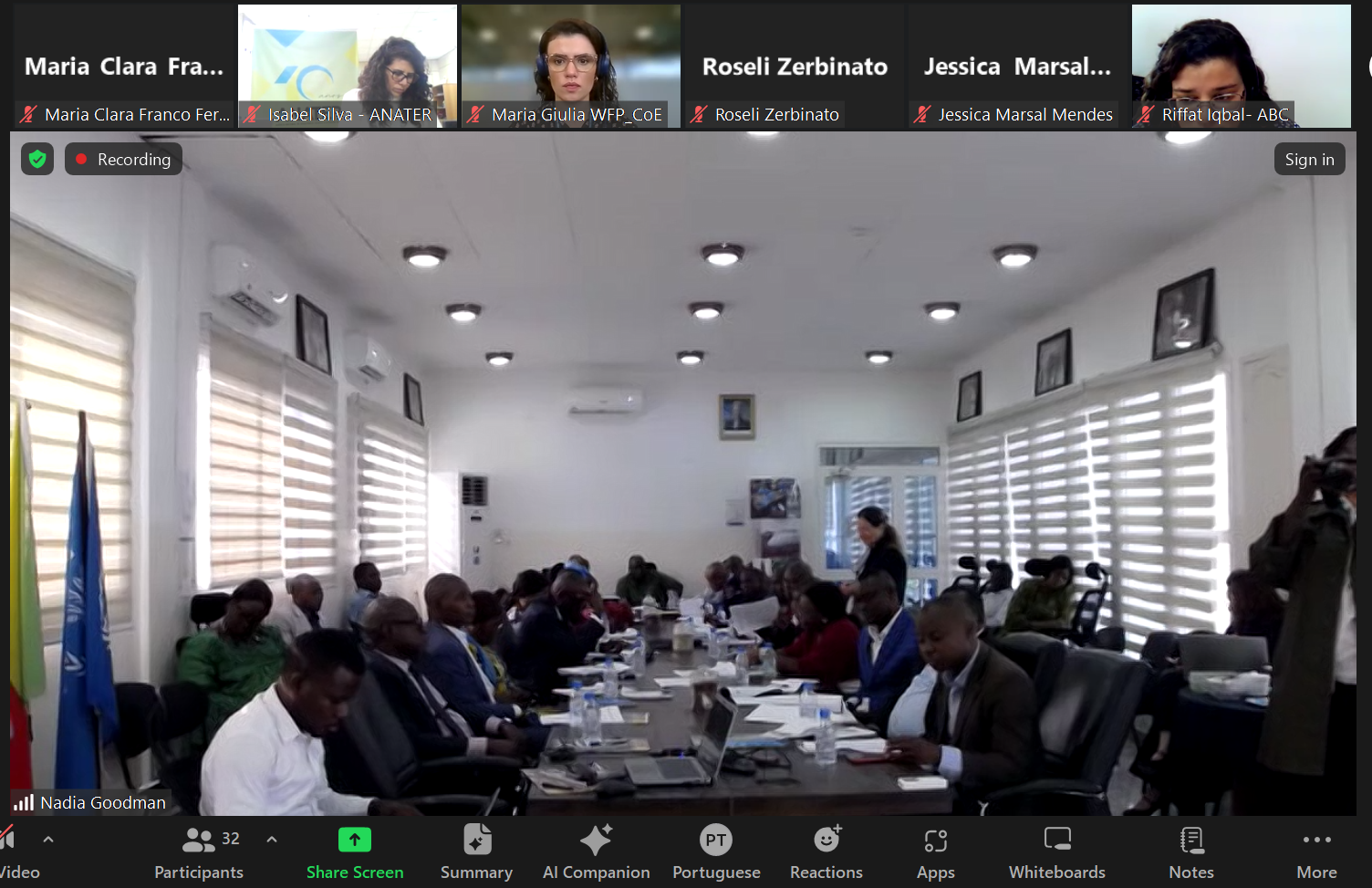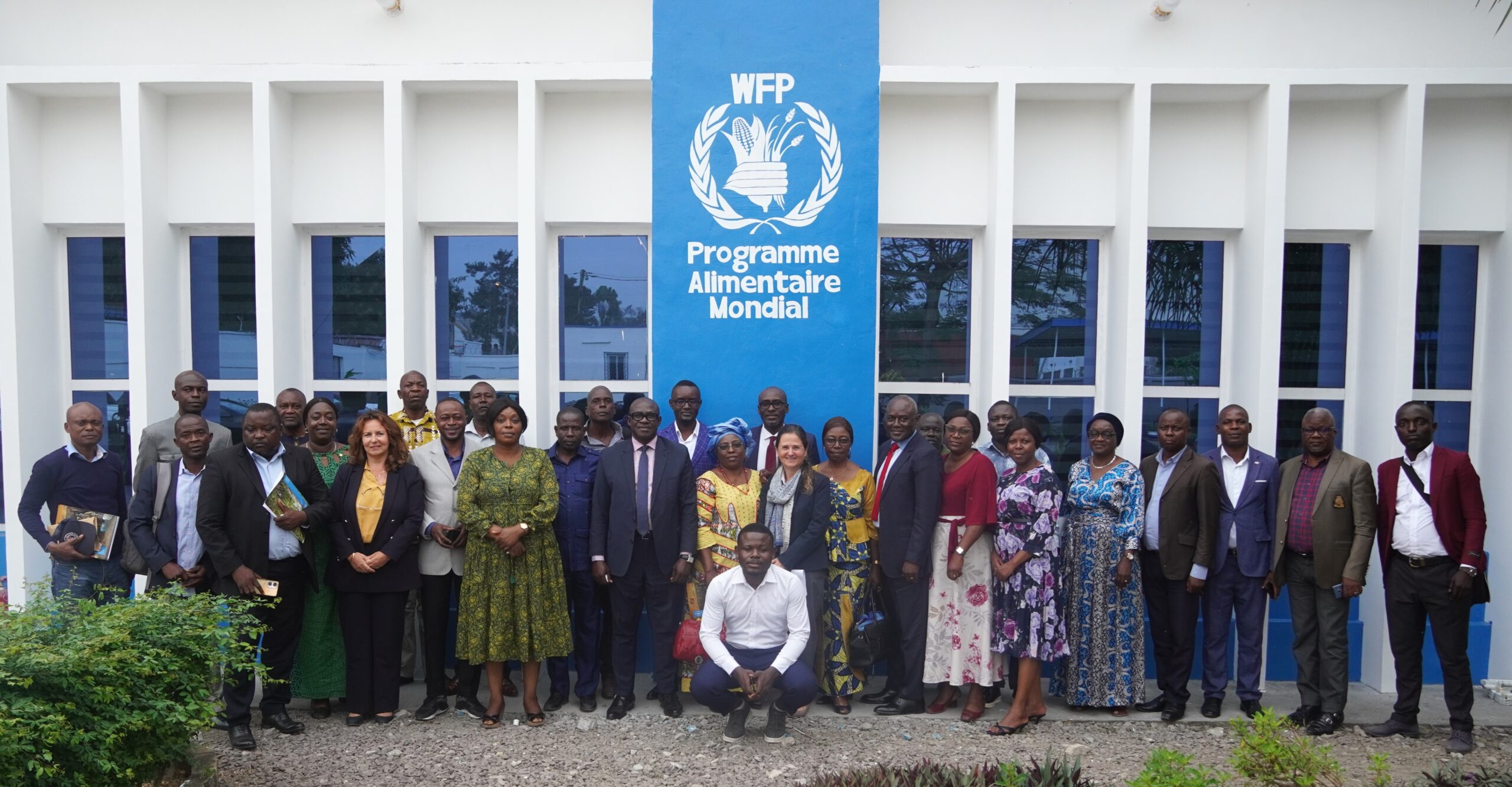
On August 29, the Seeds for Tomorrow project, a partnership between the governments of the Republic of Congo and Brazil, held its first online workshop, with the theme of “Institutions and public policies for strengthen family farmers”. This is an initiative by the Brazilian Cooperation Agency (ABC), the National Fund for the Development of Education (FNDE), and the Ministry of Agrarian Development (MDA), with support from the World Food Programme (WFP) in the Republic of Congo and the WFP Centre of Excellence against Hunger in Brazil and is funded by the India-Brazil-South Africa Fund for Poverty and Hunger Reduction (IBSA Fund).
According to Gon Myers, WFP Country Director in the Republic of Congo, the workshop is an opportunity to find solutions tailored to each reality. “This meeting represents a common commitment to advance this ambitious project, which is to bring family farming to schools as well,” he said during the workshop’s opening.
The event included the participation of 24 representatives from different levels of the government of the Republic of Congo, officials from the Ministry of Agriculture, Livestock, and Fisheries (MAEP), the Ministry of Preschool, Primary, Secondary Education, and Literacy (MEPPSA), and other entities.
The Brazilian government was represented by the Brazilian Cooperation Agency (ABC), the Ministry of Foreign Affairs and representatives of the Ministry of Agrarian Development (MDA), National Agency for Technical Assistance and Rural Extension (Anater), National Supply Company (CONAB), and Brazilian Agricultural Research Corporation (EMBRAPA).
“Events like this are essential for the exchange between our countries in promoting policies that strengthen family farming and its link to school feeding,” said Riffat Iqbal, project analyst at ABC.
 Brazilian Aspects
Brazilian Aspects
During her presentation, Roseli Zerbinato from the Ministry of Agrarian Development and Family Farming (MDA) spoke about policies supporting the acquisition of family farming products in stock formation and institutional purchases. “There are 10 million people in family farming in Brazil, and we seek to integrate them into various programs for their strengthening.” She cited examples of programs aimed at increasing the productive capacity of family farmers, job and income generation, production financing, and sustainable systems integration.
Isabel Silva, from the National Agency for Technical Assistance and Rural Extension (ANATER), explained how the agency coordinates actions with productive, social, and environmental guidance. “Our action is oriented to each territory and adapted to the specific needs of producers in that region. Additionally, we have actions aimed at women farmers and the promotion of agroecology,” she said.
Regarding supply policies, Sérgio Santos, from the management of the National Supply Company (CONAB), highlighted that food security is linked to supply regulation in the country. Supply regulation involves closely monitoring production and prices and ensuring distribution from the producing regions to the consuming ones. “When the price is below the minimum, CONAB acquires products at the minimum price to smooth market fluctuations and provide security to the productive sector,” he explained.
Agronomist Paulo Galerani, a researcher at the Brazilian Agricultural Research Corporation (EMBRAPA), presented an overview of the challenges of agricultural production in the tropical belt, common to both the Republic of Congo and Brazil. “We went through phases in developing technologies to adapt temperate-area productions, such as soybeans, to the tropical climate.”
He mentioned three pillars for this adaptation: converting acidic soils into fertile ones, tropicalizing seeds and animals, and developing platforms that avoid soil and biodiversity loss. “Today, we have integrated crop-livestock-forestry systems and agroforestry systems, both suited to family farmers,” he said.
He also mentioned the potential for cooperation in conventional crop improvement for grains such as soybeans, wheat, rice, and beans, as well as research on goats, sheep, and semi-arid crops, like cassava, bananas, papayas, pineapples, passion fruit, and oranges. He emphasized that most of Brazil’s agricultural production comes from family farming, highlighting the importance of policies in this sector.

Congolese Representatives
After the Brazilian presentations, authorities from the Republic of Congo shared their thoughts, emphasizing the similarities between the countries.
Mr. N’Kaya-Tobi, Director-General of Livestock of the Ministry of Agriculture, Livestock, and Fisheries of the Republic of Congo, emphasized the relevance of understanding Brazil’s reality. “We discovered a country where family farming is at the heart of policies, actions, and research that make it fundamental to the nation’s agricultural production,” he stated.
The Ministry of Agriculture requested strategic partnerships in agricultural production for semi-arid regions, a priority for the Republic of Congo, along with clarifications on food stocks, perishable conservation, and price policies throughout the year.
Mrs. Lilie Ebelayala, the Finance and Material Manager for the School Feeding Directory from the Ministry of Pre-school, Primary, Secondary Education and Literacy of the Republic of Congo, expressed concern regarding acidic soil transformation, which could have future impacts, as chemical inputs are used. In response, Paulo Galerani from EMBRAPA explained that bioinputs are now used to replace chemical products to maintain biodiversity. “We went through a phase of intense chemical use, but today this trend is reversing, and we are willing to share this technology with our counterparts in the Republic of Congo,” he said.
Upcoming Events
A total of three online workshops will be held this year. The next ones are scheduled for September 19 and another in November. The workshops will focus on different aspects of the school feeding program, exchanges between the two governments on local agricultural production, and program monitoring.




